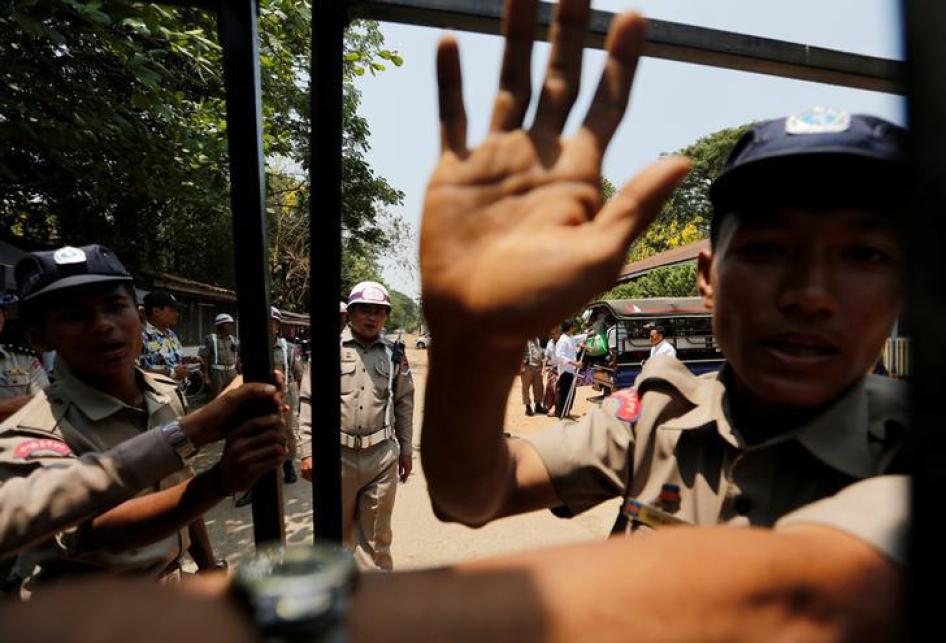The Myanmar government has ordered the release of three dozen political prisoners, a welcome step that still leaves scores in detention or on trial on politically motivated charges, according to local monitors. Real reform in Myanmar will require stripping away the architecture of repression and ending prosecutions of the government’s critics.
Yesterday, newly elected President Win Myint followed the tradition of releasing prisoners on the first day of the Myanmar New Year by announcing the release of more than 8,500 prisoners, including 36 political prisoners. These releases are commonly referred to as “amnesties” but are, in reality, pardons, which do not absolve those released of their crimes or the legal consequences.
Among those released were Lahpai Gam, an ethnic Kachin farmer, and two religious leaders from Kachin State, Dumdaw Nawng Latt and Langjaw Gam Seng. All of them faced a battery of charges, including under the Unlawful Associations Act, a broadly worded law that has been routinely used for decades to imprison those suspected of having any contact with opposition armed groups.
Among those not pardoned were Reuters journalists Wa Lone and Kyaw Soe Oo, who are on trial for allegedly violating the Official Secrets Act, and face up to 14 years in prison. The men were arrested after meeting with two police officers as part of an investigation the journalists were conducting into the massacre of 10 ethnic Rohingya men in northern Rakhine State during last year’s military-led campaign of ethnic cleansing that drove nearly 700,000 Rohingya into Bangladesh. Calls for their release by the United Nations secretary-general, donor governments, media, and human rights groups have gone unheeded.
If Myanmar officials including President Win Myint, State Counsellor Aung San Suu Kyi, and the plethora of former political prisoners who sit in parliament representing the ruling National League for Democracy (NLD) want to empty the prisons of political prisoners, they should reform or repeal the many overbroad and vaguely worded laws that have been used to silence activists, journalists, and those simply exercising their rights to peaceful expression. The yearly ritual of pardons is no substitute for reform, nor does it absolve the NLD of its responsibility to end these injustices once and for all.










